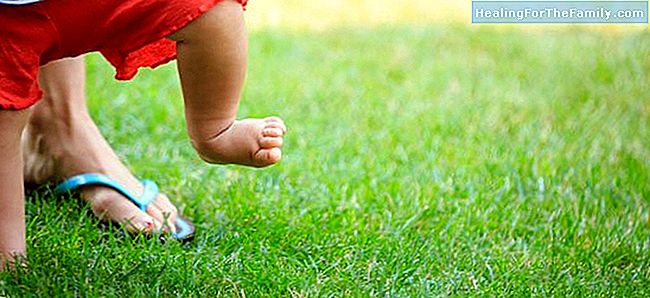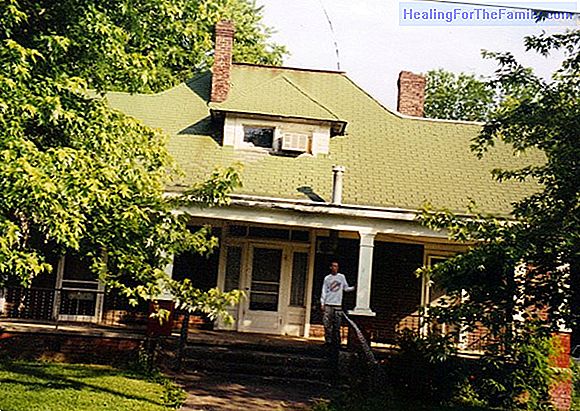When the baby does not decide to walk
All families have the desire to see that their child begins to take the first steps. First, because it shows that he is healthy, that his legs obey the orders that the brain must provide; and the second because in this way we will know that he will begin to explore the world from a higher point of v
All families have the desire to see that their child begins to take the first steps. First, because it shows that he is healthy, that his legs obey the orders that the brain must provide; and the second because in this way we will know that he will begin to explore the world from a higher point of view, which will provide him with a more intense way of interacting with all the objects and all the people around him, being him and only him, he who voluntarily and consciously initiates that wonderful stage that will accompany him throughout his life.
That is why many parents, impatient, ask themselves ... why does my child take so long? Should not I walk already? Actually ... when should we worry?
What factors influence the child's progress

- Evolution of the brain and psychomotor apparatus: Most parents want their child to start walking as soon as possible. What happens is that we are not programmed like other living beings that, as soon as they are born, without the help of anyone, are able to move from one place to another, but our complex brain, before the high specialization that will have to assume in the future in multiple areas (linguistic, psychic and motor, among others), you must wait for the right moment to start the orders that we have written in our genes.
- Social interaction: Furthermore, these orders can not be executed without the support and help of other members of our same species. That is, if nobody taught us, if nobody interacted with us and encouraged us to stand up, to crawl, to walk, we would always lie down with a severe atrophy of the entire locomotor system. Although you do not have to go through the stimulation either, since 'it does not dawn early in the morning'; By the way, the taca-taca or walker is not advisable because it is leaving a vehicle to someone who does not know how to drive.
At what age a child begins to walk
All the previous premises condition a great variability at the time of being able to analyze the age at which a baby begins to walk. In this way, when a baby who is light and somewhat "restless" receives adequate stimulation from all or almost all family members, it is very likely that he will begin to take the first steps long before another baby, also absolutely normal, which is something more 'reflexive', something more corpulent (the earth's gravity attracts him more strongly than the light one) and that perhaps receives less motor stimulation, which does not mean that it does not have it in another field, such as , the linguistic; with what we will have that the second baby will talk by the elbows with 16-18 months, although he may still need the protective hands of his caregivers to walk alone, with fear of letting go, while the first baby is with 10 -12 months dribbling rivals Messi style, but do not stop saying 'ago, ago', pupa, poop and mom, at the age when the other is able to ask about the existence of black holes in the Andromeda galaxy.
Why some babies take longer to walk Porque - Because it has not matured enough:
Your baby's pediatrician will be the one who, in addition to exploring in the different reviews, the movement, strength, shape, symmetry or asymmetry of both legs, will assess other aspects of psychomotor development that are important in the overall development of the child, and will help you to know if the fact of not walking alone, with an age in which you could theoretically be doing it, is a reason for study or there is simply to wait for that aspect to mature, the limit being between approximately 17 and 18 months. - Because it moves very well crawling:
Some babies take longer to walk simply because they have a good time crawling and travel their world in this way; others go from sitting to walking directly without having crawled. The important thing, in reality, is that over 12 months, the baby moves autonomously: crawling like a snake, crawling (there are several 'styles') or walking even if it is holding onto any furniture that is within reach. - Because he has not yet learned to stand up: To start walking first they must have learned to stand up by themselves, with their backs straight and their legs already firm. Do not ask for perfection when walking in this first stage because the amount of muscles and structures involved in a safe and balanced ambulation is huge. Therefore, it is common that in the first months that you start walking, 'open' one foot more than the other, or expand the base of support by separating both feet to have more balance. Running with dexterity and safety, and standing without leaning anywhere,
may take up to 20 months of age approximately.











